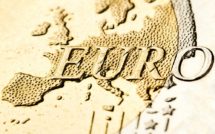

This is part of our special feature on The Crisis of European Integration.
Intimate knowledge of political and economic players is no guarantee for proper analytical insights into political and economic developments. Sir Paul Lever was the British ambassador to Germany during the turbulent years of 1997 to 2003–a period where Germany was widely seen as the Sick Man of Europe. Located in Berlin, Lever had the chance to observe the calamities of the German political economy, and his later professional life gave him the opportunity to follow the economic and political resurrection of the country closely. Since the global financial crisis, Germany experienced a massive turnaround of its fate and today is widely seen as the dominant power in Europe–in Lever’s words: Berlin rules. Over the last couple of years, the idea that Germany is again dominating Europe has become a mainstream view, not only in media, but also in scholarly literature.
In the opening chapter of Berlin Rules, Lever hints at what to expect when he states that Germany “exercises power in Europe and provides the impetus for all of the EU’s decisions” but that it is “power without purpose.” What sounds like a compelling phrase that will be very much appreciated by German politicians who fear nothing more than being connected to the dark past of Germany, is actually nothing but an empty phrase that obscures more than it enlightens the reader. One does not need to go back to Max Weber’s definition of power as “the ability of an individual or group to achieve their own goals or aims when others are trying to prevent them from realizing them” to be reminded that power always has a purpose. Power is a relational category where one side has a systematic advantage over the other and uses this advantage to its benefit. The question then is, what would be the purpose of German power? Lever needs another two-hundred and forty pages to get an answer: “Germany exercises power to protect the German economy and to enable it to play an influential role in the wider world.” What Lever comes up with is the 101 for any student of international relations, i.e. nation-states create and use their power base for supporting narrowly defined economic and political interests. In this respect, Germany is like any other nation-state. Not all nation-states are equal, though, and thus the question is to which degree German power differs from powers of other territorial units?
Like other students of the political economy of Germany, Lever makes the point that the base of Germany’s power is its economy, to be concrete: its strong manufacturing sector and its outstanding export performance. Lever adds the good state of its public finances, as well as the high level of social solidarity and security as sources of Germany’s economic success. The problem with such a list is that it is misleading and even wrong. Let me start with the trade balance which Lever interprets in best mercantilist tradition as a sign of German power. He may have had nice lunches and dinners with CEOs of German exporters and learned about their ways of thinking, but those talks have not helped him to understand the accounting logics and macroeconomics of international economics. Germany’s structural trade surplus is the result of a savings-investment imbalance and results in foreign exchange income that then shows up as current account surpluses. In the German case, those surpluses have reached a height that not only violates the EU’s macroeconomic imbalance rules, but also draws on a regular base critic from the IMF (not to mention US-governments) as the German surpluses are directly feeding into global (and also European) imbalances that threaten financial stability. Rather than strength, the surpluses indicate a weakness of the German economy that suffers from a relatively low investment share and a too high savings ratio – private and public. It is quite difficult to praise an average growth rate of real GDP between 2010 and 2017 of 1.92 percent as the base of German power. Lever rightly points to the improvement of German public finances, but he fails to illustrate that the source of the so-called “Black Zero” is the drastic reduction of interest payments on German bonds. According to the German Bundesbank, the monetary policy of the European Central Bank cut the average cost of borrowing of Germany’s federal, state, and municipal governments from around 4 percent in 2007 to 2 percent in 2016, thus creating savings of about €240bn in interest payments over this period. Quantitative easing on the side of the ECB, as well as its low-interest approach, is the direct result of the austerity recipe of Germany and its fiscal orthodoxy partners within the Eurozone that made fiscal policy not to a crisis solution but actually to a crisis contributor. Lever does not even touch upon these topics. Similarly, he simply neglects the divisions of German labor markets where the share of insecure jobs has increased dramatically over the last decade. Not to mention, the strong increase of the Gini coefficient, a widely used measure of income inequality. True, income inequality is still on a low level, in particular in comparison to Lever’s home country, but is has risen fast and become a political issue over time that is reflected in the rise of the Alternative für Deutschland, a populist right-wing party that will soon send members to the Federal German parliament. Rather than presenting an analysis along those lines, Lever forces the reader through a collection of dull insights and stereotypes,missing his argument that “it’s the economy, stupid.”
Still, there is no doubt that Germany has become the most influential political-economic actor since the outbreak of the Eurozone crises. German coalition governments were able to create and lead a coalition of like-minded governments, mainly external surplus economies, which had the common interests to stabilize the common currency by rule-oriented policies and to avoid becoming paymasters for countries facing sovereign debt crises. Without this coalition, Germany would not have been able, for example, to make fiscal austerity to the crisis doctrine, nor would it have been able to avoid the introduction of instruments like Eurobonds, which were for a time even favored by the Commission. The critical variable for the understanding of Germany’s position in Europe, though, seems to me the weakness of other political players, mainly of France, as well as the attitude of the UK even before the leave-decision. In the best zero-sum perspective, the relative loss of decision-making power of two main actors led to a relative power gain of Germany. All this would have been great stuff to discuss for an insider like Paul Lever, but the reader can’t find it in the book.
The strongest part of a weak book is Lever’s explanation of Germany’s attraction to the EU. It may not be new to argue that Germany’s past opened the door for making the project of European integration to a vehicle of identity. Still, it is a convincing argument as it provides the crucial insight that Germany can exercise influence and power when it comes in “European disguise.” This also explains why all main political parties in Germany are strong supporters of European integration, as fighting for this project allows them to step outside German history and still follow through with German interests. European integration is, for Germany, much more than an economic project, where the balance of costs and benefits decides about its virtues. For quite a long time, Germany was seen – rightly or wrongly–as the paymaster of Europe, as an economic giant and a political dwarf. This description no longer fits reality. Germany has become arguably the most critical economic as well as a political actor in the EU, and yet it is misleading to propose that the country is the sole ruler of Europe. Things are much more complex than retired ambassadors sense.
Reviewed by Kurt Huebner, University of British Columbia
Berlin Rules: Europe and the German Way
by Paul Lever
Publisher: I.B. Tauris
Hardcover / 288 pages / 2017
ISBN: 9781784539290
Published on November 2, 2017.




